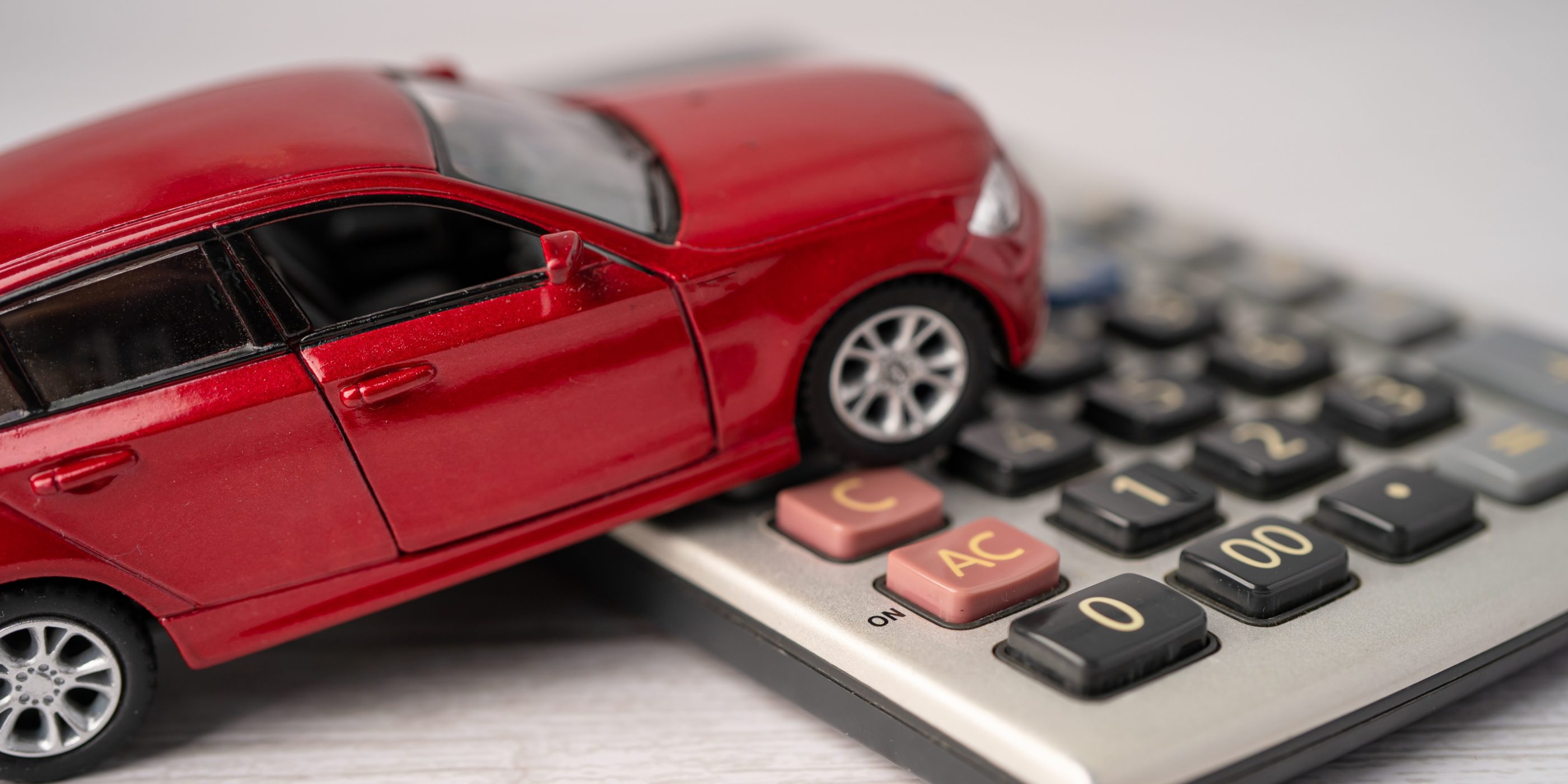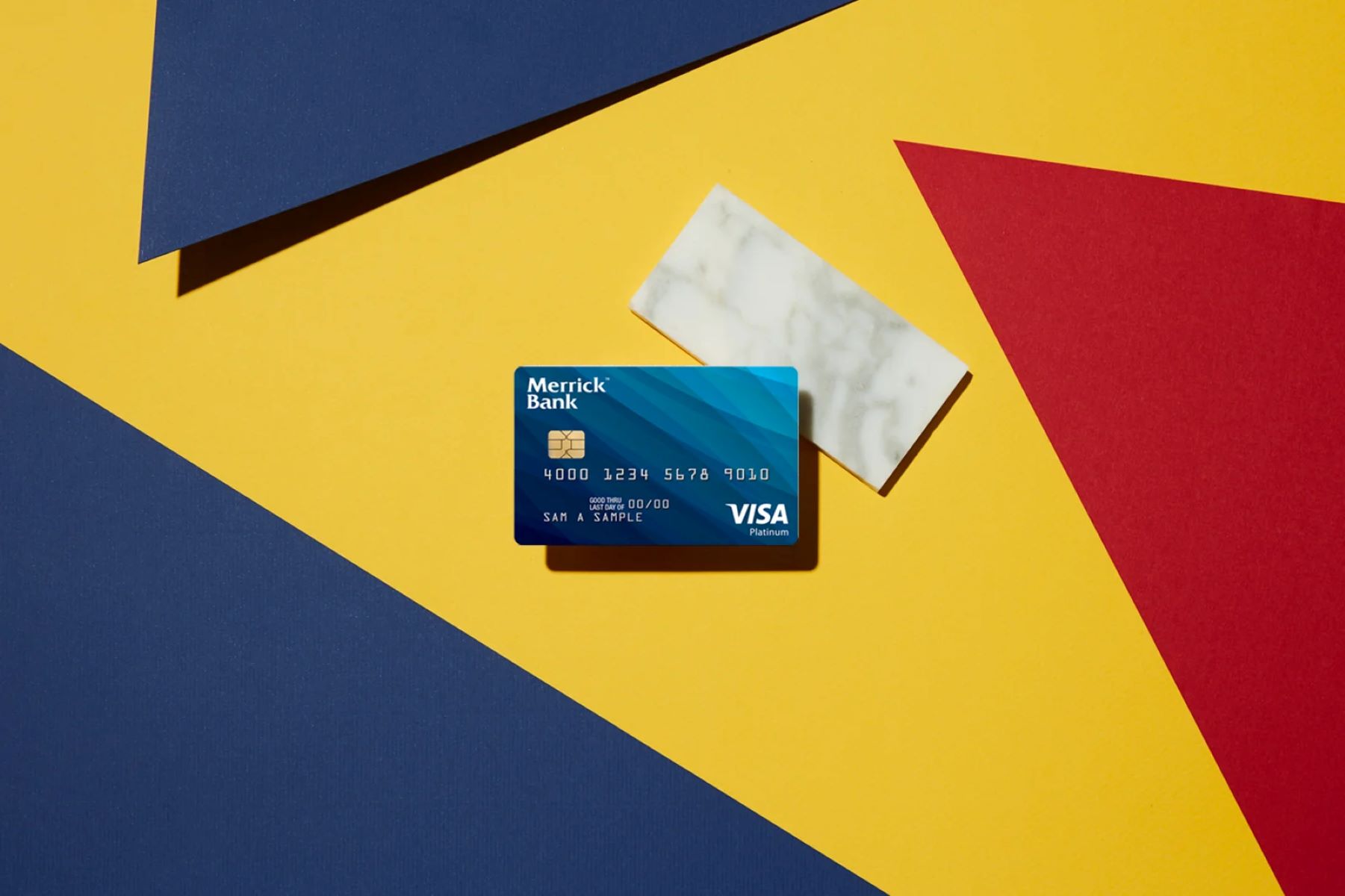Home>Finance>How Late Can A Car Payment Be Before It Affects Your Credit


Finance
How Late Can A Car Payment Be Before It Affects Your Credit
Published: January 8, 2024
Find out how late a car payment can be before it impacts your credit. Understand the financial consequences and take control of your finances with our expert guidance.
(Many of the links in this article redirect to a specific reviewed product. Your purchase of these products through affiliate links helps to generate commission for LiveWell, at no extra cost. Learn more)
Table of Contents
- Introduction
- Understanding Credit Scores and Reports
- How Car Payments Affect Your Credit
- Late Car Payments and Their Impact on Credit
- How Long Before a Late Car Payment Affects Your Credit
- Consequences of Late Car Payments on Your Credit
- Tips for Avoiding Late Car Payments
- What to Do If You Are Facing Late Car Payments
- Conclusion
Introduction
Having a car is often essential for many individuals and families, providing the freedom and convenience to travel whenever needed. However, financing a car comes with responsibilities, including making timely payments on your loan or lease. One important factor to consider when managing your car payments is how they can impact your credit.
Your credit score is a crucial financial indicator that lenders, landlords, and even potential employers use to assess your creditworthiness. It is a three-digit number that reflects your credit history, including how well you handle your debts and financial obligations. A higher credit score indicates a lower risk for lenders, while a lower credit score can make it more challenging to secure favorable loan terms or even be approved for credit.
When it comes to car payments, late or missed payments can have a significant impact on your credit score. This can affect your ability to qualify for loans in the future and can even result in higher interest rates if you are approved.
In this article, we will explore how car payments can affect your credit, discuss the consequences of late car payments, and provide tips to avoid falling behind on your payments. Additionally, we will examine how quickly a late car payment can impact your credit score and what steps you can take if you find yourself facing financial difficulties.
Understanding Credit Scores and Reports
Before diving into how car payments can affect your credit, it’s crucial to have a basic understanding of credit scores and credit reports. A credit score is a numerical representation of your creditworthiness based on your credit history. It ranges from 300 to 850, with a higher score indicating better creditworthiness. Credit scores are determined by various factors, including payment history, amount owed, length of credit history, types of credit used, and new credit.
On the other hand, a credit report is a detailed account of your credit history. It includes information about your credit accounts, payment history, account balances, credit inquiries, and any negative items such as late payments, charge-offs, or bankruptcies. Credit reports are maintained by credit bureaus and are used by lenders, landlords, and other institutions to assess your creditworthiness and make decisions about extending credit.
It’s important to review your credit report regularly to check for inaccuracies, unauthorized accounts, or potential identity theft. You are entitled to a free copy of your credit report from each of the three major credit bureaus (Equifax, Experian, and TransUnion) once a year through AnnualCreditReport.com.
Understanding how credit scores and reports work can help you make informed decisions about your financial health and take steps to improve your creditworthiness. Now, let’s explore how car payments specifically can impact your credit.
How Car Payments Affect Your Credit
Car payments can have both positive and negative effects on your credit. On the positive side, consistently making your car payments on time and in full demonstrates responsible credit management. This can help you build a positive payment history and improve your credit score over time. Timely car payments show potential lenders that you are reliable and can be trusted to repay your debts.
Additionally, having a car loan can contribute to your credit mix, which is one of the factors that make up your credit score. Lenders like to see a diverse mix of credit types, including installment loans like car loans, along with revolving credit such as credit cards. This demonstrates your ability to handle various types of credit responsibly.
However, missing or making late car payments can have the opposite effect on your credit score. Late payments can negatively impact your credit history, which accounts for approximately 35% of your credit score. Each missed payment is typically reported to the credit bureaus and can stay on your credit report for up to seven years. It is important to note that the severity of the impact depends on factors such as how recent the late payment was, the frequency of late payments, and the overall strength of your credit history.
Furthermore, if you consistently fail to make your car payments and your account goes into default, it can lead to repossession. A car repossession is a serious negative mark on your credit report and can significantly lower your credit score. It may also make it difficult to obtain future credit, as lenders may view you as a higher risk.
In summary, making timely car payments can have a positive impact on your credit score, showcasing your financial responsibility and helping you build a solid credit history. Conversely, missing car payments or having your car repossessed can have detrimental effects on your credit, potentially making it more challenging to secure credit in the future.
Late Car Payments and Their Impact on Credit
Late car payments can have a significant impact on your credit score and overall creditworthiness. When you miss a car payment, it typically gets reported to the credit bureaus, which can result in negative marks on your credit report. The severity of the impact depends on factors such as the length of time the payment is overdue, the frequency of late payments, and your overall credit history.
Even a single late payment can cause a drop in your credit score, although the extent of the decrease will vary. Generally, the more recent the late payment, the more it will negatively impact your credit score. For example, a payment that is 30 days overdue may result in a smaller hit to your credit score compared to a payment that is 90 days overdue.
Repeated late payments can have a compounding effect on your credit score. If you have a pattern of late car payments or multiple accounts with late payments, it can indicate to lenders that you may be struggling financially or have difficulty managing your debts. This perceived higher risk can lead to lower credit scores and make it more challenging to obtain credit in the future.
In addition to the direct impact on your credit score, late car payments can also result in increased interest rates on existing loans or credit cards. If your credit score drops significantly due to late payments, lenders may view you as a higher-risk borrower and adjust the interest rates accordingly. This can lead to higher finance charges and potentially cost you more money in the long run.
It is important to note that late payments, including those for car loans, can stay on your credit report for up to seven years. This means that even after you catch up on your payments, the late payments will still be visible to lenders and can negatively impact your creditworthiness during that time.
Overall, late car payments can have a significant and lasting impact on your credit score and financial well-being. It is crucial to make your car payments on time to maintain a positive credit history and avoid the potential consequences of late payments.
How Long Before a Late Car Payment Affects Your Credit
Many people wonder how long it takes for a late car payment to affect their credit. While there is no exact timeframe, the impact of a late car payment on your credit can be felt relatively quickly.
Typically, car loan lenders report late payments to the credit bureaus once they are 30 days overdue. This means that if you miss a payment or make a late payment, it may not immediately show up on your credit report. However, once it is reported, it can have an immediate negative impact on your credit score.
It’s important to note that the longer a late payment goes unresolved, the more it can harm your credit. If you continue to miss payments or make late payments consistently, the negative impact can become more significant. This is because lenders view a pattern of late payments as a sign of financial instability and a higher risk borrower.
Additionally, the severity of the impact depends on your overall credit history. If you have a solid credit history with a long record of on-time payments, a single late car payment may not have as significant of an impact as it would for someone with a limited credit history or a history of late payments.
It’s worth noting that credit scores are complex and can be affected by a variety of factors. While late car payments are certainly important, they are just one piece of the puzzle. Other factors, such as the length of your credit history, your credit utilization ratio, and the presence of any other negative marks on your credit report, also contribute to your credit score.
If you do have a late car payment on your credit report, it’s important to take immediate action to rectify the situation. Communicate with your lender, catch up on your payments, and work towards establishing a consistent payment history moving forward. Over time, making on-time payments and demonstrating responsible credit management can help improve your credit score and mitigate the impact of the late payment.
In summary, a late car payment can affect your credit relatively quickly, with lenders typically reporting late payments after 30 days. The negative impact can vary depending on the length of the late payment, your overall credit history, and other factors. Taking prompt action to resolve late payments and maintaining a positive payment history is crucial for protecting your credit score.
Consequences of Late Car Payments on Your Credit
Late car payments can have significant consequences on your credit. These consequences can affect your ability to secure future credit, impact the terms and interest rates on your existing loans, and potentially harm your overall financial stability.
The most immediate consequence of a late car payment is a negative impact on your credit score. As mentioned earlier, late car payments are typically reported to the credit bureaus after 30 days. Once reported, they can lower your credit score, making it more challenging to qualify for loans in the future or obtain favorable interest rates.
A lower credit score can result in higher interest rates on future loans, including car loans, mortgages, and credit cards. Lenders may view you as a higher-risk borrower, leading them to impose higher finance charges to compensate for the perceived increased likelihood of default. Over time, these higher interest rates can cost you a significant amount of money.
In some cases, consistently missed payments or defaulting on your car loan can lead to repossession. If your car is repossessed, it will negatively impact your credit score and stay on your credit report for up to seven years. This can make it extremely difficult to obtain financing in the future and may even impact your ability to rent an apartment or secure certain jobs that require a good credit history.
Furthermore, late car payments can also result in late fees and penalties from your lender. These fees can add up quickly, making it even more challenging to catch up on your payments. The added financial burden can put additional strain on your budget and lead to a cycle of late payments and accumulating debt.
It is worth noting that the consequences of late car payments are not solely limited to your credit. They can also affect your overall financial well-being. Late payments can create stress, damage your relationships with lenders, and even result in legal action if left unresolved.
To mitigate the consequences of late car payments, it is important to take immediate action. Contact your lender to discuss your situation, explore possible solutions such as payment plans or loan modifications, and make a commitment to getting back on track with your payments. Establishing a positive payment history and communicating with your lender can help minimize the negative impact on your credit and overall financial stability.
In summary, late car payments can have far-reaching consequences on your credit, including lower credit scores, higher interest rates, potential repossession, and additional fees. It is crucial to address late payments promptly and work towards establishing a positive payment history to protect your credit and overall financial well-being.
Tips for Avoiding Late Car Payments
Avoiding late car payments is crucial for maintaining a positive credit history and financial stability. By implementing the following tips, you can stay on top of your car payments and minimize the risk of late or missed payments:
- Create a budget: Establish a budget that includes your car payment as a fixed expense. This will help you prioritize your payments and ensure that you have enough funds available each month.
- Set up automatic payments: Consider setting up automatic payments for your car loan. This way, the payment is deducted from your bank account on a specific date each month, minimizing the chance of forgetting or missing the payment due date. Just remember to ensure that you have sufficient funds in your account to cover the payment.
- Set reminders: If you prefer not to set up automatic payments, set reminders for yourself to make your car payment before the due date. You can use smartphone apps, calendar alerts, or other digital tools to help you remember. Additionally, you can also sign up for email or text alerts from your lender to receive payment reminders.
- Opt for shorter loan terms: When financing a car, consider opting for a shorter loan term if it fits within your budget. Longer loan terms may result in lower monthly payments, but they also increase the risk of financial circumstances changing and making it more challenging to meet your payment obligations.
- Communicate with your lender: If you foresee that you might have difficulty making a car payment, it’s important to communicate with your lender as soon as possible. Many lenders are willing to work with borrowers facing temporary financial setbacks. They may be able to provide options such as payment extensions, restructuring your loan, or temporarily reducing your payment amount.
- Explore refinancing options: If you’re finding it challenging to keep up with your current car payment, consider exploring refinancing options. Refinancing your car loan may allow you to secure a lower interest rate or extend the loan term, resulting in more manageable monthly payments.
- Monitor your credit score: Regularly checking your credit score and credit report can help you stay aware of any changes or potential issues. By detecting any errors or fraudulent activity early on, you can address them promptly and ensure that your credit is accurate and up-to-date.
- Build an emergency fund: Having an emergency fund in place can provide a safety net in case unexpected expenses arise. By setting aside money specifically for emergencies, you can avoid having to divert funds from your car payment and risk falling behind.
By implementing these tips and staying proactive in managing your finances, you can avoid late car payments and maintain a positive credit history. Remember, making timely payments not only protects your credit but also helps you build a strong foundation for your financial future.
What to Do If You Are Facing Late Car Payments
If you find yourself facing late car payments, it’s important to take immediate action to address the situation. Ignoring the issue can worsen the consequences and harm your credit even further. Here are some steps you can take if you are struggling to make your car payments:
- Assess your financial situation: Start by assessing your overall financial situation. Look at your income, expenses, and debts to get a clear understanding of what you can afford. This will help you determine if there are any necessary adjustments you need to make to your budget.
- Contact your lender: Reach out to your lender as soon as possible to explain your situation. Lenders are often willing to work with borrowers facing financial difficulties. They may be able to provide options such as payment extensions, loan modifications, or temporarily reduced payment amounts.
- Create a repayment plan: Work with your lender to create a repayment plan that fits within your budget. This may involve restructuring your loan, spreading out missed payments over a period of time, or adjusting your payment due dates. Make sure you fully understand the terms of the repayment plan before agreeing to it.
- Consider refinancing: If your car loan terms or interest rates are making it difficult to afford your payments, explore the option of refinancing. Refinancing your car loan may allow you to secure more favorable terms or a lower interest rate, resulting in lower monthly payments.
- Seek financial counseling: If you’re having trouble managing your debts and finances, consider seeking the assistance of a reputable credit counseling agency. A credit counselor can provide guidance on budgeting, debt management, and financial planning. They may also be able to negotiate with your lenders on your behalf.
- Explore assistance programs: Depending on your circumstances, you may qualify for assistance programs that can help with your car payments. Research local and national programs that are designed to provide financial relief to individuals and families facing hardships.
- Consider selling or trading in your car: If your financial situation does not improve and you find it impossible to keep up with your car payments, you may need to consider selling or trading in your car. This can help you avoid repossession and potentially reduce your financial burden.
- Stay proactive: Even if you are working with your lender to address your late payments, it’s important to stay proactive and maintain communication. Keep track of your payments, make them on time, and continue to monitor your credit report to ensure that the resolution is reflected accurately.
Remember that addressing the issue promptly and being proactive can help mitigate the impact of late car payments on your credit score and financial well-being. Reach out for assistance when needed, explore available options, and take steps to regain control of your finances.
Conclusion
Managing car payments responsibly is essential for maintaining a healthy credit score and financial stability. Late or missed car payments can have a significant impact on your credit, potentially affecting your ability to secure future credit and resulting in higher interest rates. It is crucial to understand the consequences of late car payments and take proactive steps to avoid falling behind.
By understanding how car payments affect your credit, you can make informed decisions and prioritize timely payments. Making payments on time demonstrates financial responsibility and helps build a positive credit history. On the other hand, late car payments can lead to negative marks on your credit report, which can be challenging to recover from.
If you find yourself facing late car payments, it is important to take immediate action. Contact your lender, explain your situation, and explore options such as payment extensions, loan modifications, or refinancing. It’s crucial to communicate with your lender and work towards finding a solution that fits within your budget.
Additionally, budgeting, setting up reminders, and automating payments can help you stay organized and avoid late payments. Monitoring your credit score, reviewing your credit report regularly, and seeking financial counseling if needed are also important steps in maintaining overall financial health.
Remember, the consequences of late car payments can be long-lasting, impacting your creditworthiness and financial opportunities. By staying proactive, addressing late payments promptly, and working towards establishing a positive payment history, you can protect your credit and achieve greater financial stability.
Ultimately, responsible car payment management is not only crucial for your credit but also for your overall financial well-being. By prioritizing timely payments and staying in control of your finances, you can pave the way for a brighter financial future.














